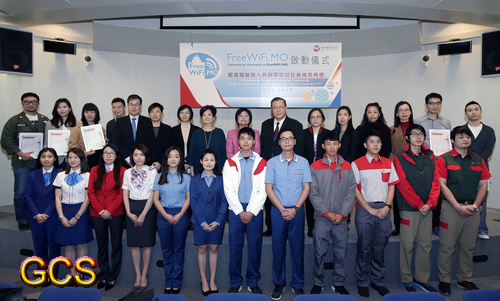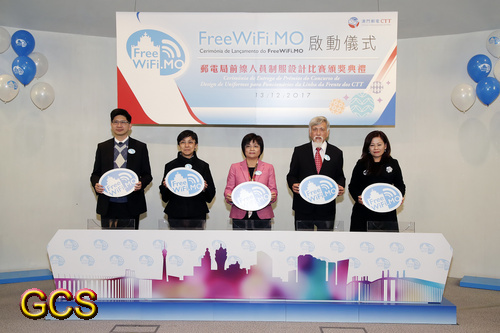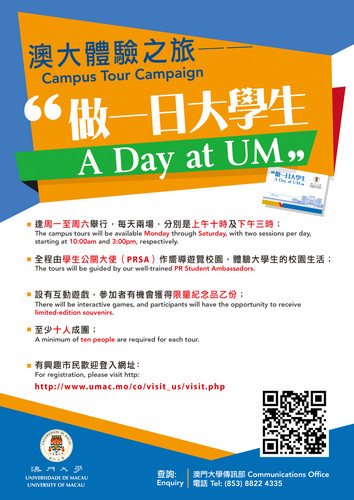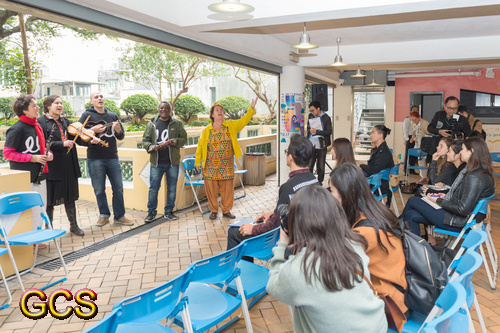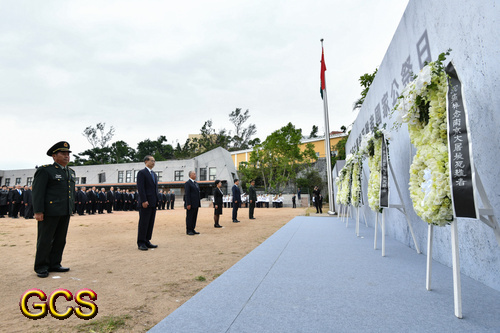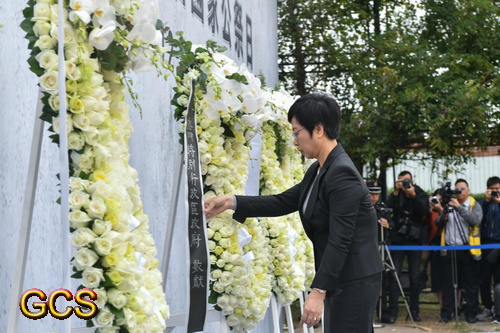Macao SAR Government Portal
News
UM launches Campus Tour Campaign ‘A Day at UM’
Since it became operational, the University of Macau’s (UM) new campus has received over 50,000 visits from local residents and visitors from around the world. In order to help the visitors learn more about student life on campus, the university recently launched an ‘A Day at UM’ Campus Tour Campaign. Guided by PR Student Ambassadors, participants will have the opportunity to visit various locations on campus and learn more about the stories of UM members. All are welcome.
…
Consumer Council released its latest ‘Supermarket price survey’ Surveyed spots included 13 supermarkets in Santo António Parish
Consumer Council conducted its latest ‘Supermarket price survey’ on 13 December for the implementation of Section 2b), Article 10, Law 4/95/M of 12 June. Surveyed locations included supermarkets at Lam Mau, Patane and San Kio areas in Santo António Parish.
…
Consumer Council released its latest ‘Supermarket price survey’ Surveyed spots included 13 supermarkets in Santo António Parish
Consumer Council conducted its latest ‘Supermarket price survey’ on 13 December for the implementation of Section 2b), Article 10, Law 4/95/M of 12 June. Surveyed locations included supermarkets at Lam Mau, Patane and San Kio areas in Santo António Parish.
…
2018MIECF: Application under Subsidy Scheme for SMEs to participate at the Green Showcase will expire on 29 December
Hosted by the Macao SAR Government, coordinated by the Macao Trade and Investment Promotion Institute (IPIM) and Environmental Protection Bureau (DSPA), the “2018 Macao International Environmental Co-operation Forum and Exhibition” (2018MIECF) will be held in Macao from 12th April to 14th April, 2018.
…
MGTO promotes Macao as travel destination at Guangdong’s signature tourism event – Guangdong Tourism and Culture Festival 2017
Director of Macao Government Tourism Office (MGTO), Maria Helena de Senna Fernandes, attended the opening ceremony of the Guangdong Tourism and Culture Festival 2017 and the establishment ceremony of the Tourism Federation of Cities in Guangdong, Hong Kong and Macao Bay Area (referred to as the “Federation”) during the opening ceremony in Zhuhai, Guangdong Province today (12 December). MGTO is running a Macao tourism booth to promote Macao’s events, festivals and tourism resources at this signature tourism event in Guangdong.
…


